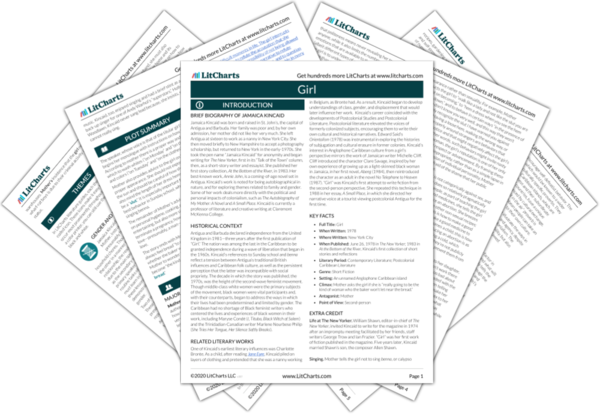The speaker, whose voice is that of the titular girl’s mother, begins her monologue with instructions on how to do laundry. According to mother there is a proper way and a proper day on which to wash whites (“on Monday” and “on the stone heap”) and colors (“on Tuesday” and “on the clothesline to dry”).
Mother also provides advice to the girl on how to maintain a proper appearance. She should not expose her “bare-head” to the sun and should be careful of how she walks, and she should also mind the length of her dress hems, to avoid appearing to be a “slut.” It is especially important for the girl to be on her best behavior in Sunday school, where she is advised against singing benna.

The remainder of Mother’s advice includes mundane lessons on personal hygiene, cooking, gardening, tailoring, and entertaining, but also more significant lessons on how to terminate a pregnancy, how to budget, how to love—presumably, a man—and how to tolerate the failure of love.
The story ends with Mother’s insistence that the girl should always feel bread “to make sure it’s fresh.” The girl questions whether the baker would “let [her] feel the bread,” which leads Mother to wonder if any of her advice matters since the girl will become “the kind of woman who the baker won’t let near the bread.”







